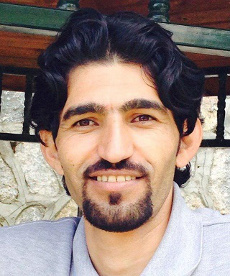The Lesson that Malala Teaches Us
 By now you have probably heard of Malala Yousafzai, the Pakistani girl who was shot in the head by the Taliban for promoting education of girls. She was warned that if she continued her campaign, she would suffer the consequences. Yet, that did not dissuade her.
By now you have probably heard of Malala Yousafzai, the Pakistani girl who was shot in the head by the Taliban for promoting education of girls. She was warned that if she continued her campaign, she would suffer the consequences. Yet, that did not dissuade her.
Her courage, and the brutality of those who want to silence her, have been adequately discussed in the media. In this post we would like to focus on an individual’s responsibility to do his or her best for realization of human rights. Yes, an individual’s responsibility.
When we talk of human rights we often associate it with state actors, and we argue about what governments should or should not do. That’s fair. A great deal of human rights responsibility rests with states. But the concept of human rights is not limited to what states do.
In real life, what individuals do might matter more. How two parents interact probably will have a larger impact on their children’s idea of gender equality than a government program. Freedom of speech and thought, race or gender equality, and the right to education are not abstract concepts. They are realized at the most basic level: the individual. Understanding, mutual respect, and equality are nor exclusive to the relationship between the individual and the state. The relationships between individual human beings should also be grounded in these concepts. If we look at human rights from this angle, our personal responsibility regarding human rights will become more tangible, and so will the importance of a person like Malala Yousafzai.
In fact, a UN documents states, “ Individuals, groups, institutions and non-governmental organizations have an important role to play and a responsibility in safeguarding democracy, promoting human rights and fundamental freedoms and contributing to the promotion and advancement of democratic societies, institutions and processes..”[1]
Which brings us to Malala. She saw it as her own responsibility to promote education of girls, which encompasses two very important human rights: The right to education, and the right to be free from discrimination on the basis of one’s gender.
How does this relate to us?
It shows us that we should not wait for the Iranian government to wake up. Nor should we exhaust all our energy trying to persuade the Iranian government to act differently. We should act ourselves, since we have a responsibility too.
We should, in our daily lives, exercise values that are enshrined in the concept of human rights. Human rights is not a two-way street between the individual and the state. It is rather a square in which the state, NGOs, private companies, religious groups, and most importantly, individuals have a stake.
[1] Declaration on the Right and Responsibility of Individuals, Groups and Organs of Society to Promote and Protect Universally Recognized Human Rights and Fundamental Freedoms, Article 19





 My Interrogator Said: You Are An Ass, And Asses Do Not Merit Human Rights
My Interrogator Said: You Are An Ass, And Asses Do Not Merit Human Rights